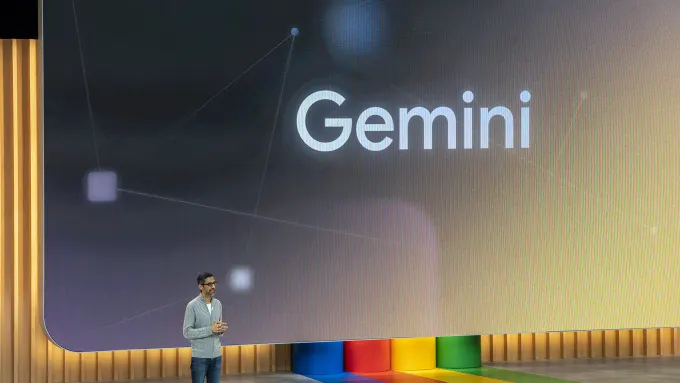On Wednesday, Google launched the most ambitious effort it has ever made to compete in the rapidly expanding field of generative artificial intelligence. It introduced the AI model Gemini, which is designed to compete with OpenAI’s GPT models and supercharge everything from Android smartphones to Google’s consumer apps.
Google’s announcement, which described Gemini as the company’s “largest and most capable AI model” and declared a “Gemini era” that envisions the tech giant’s model being used in every setting, including large businesses and consumer devices like the Google Pixel 8 Pro, reflected the scope of the company’s ambitions.
Gemini was designed to be “multimodal,” as stated by Google, in contrast to existing AI models that typically deal with only one type of user prompt, such as images or text. This implies it acknowledges inputs that incorporate various kinds of media, joining text, pictures, sound, video and programming code.
“This new period of models addresses one of the greatest science and designing endeavors we’ve embraced as an organization,” said Google President Sundar Pichai in a blog entry.
Google’s exclusive simulated intelligence chatbot, Versifier, has proactively been updated with a form of the Gemini model, the organization said Wednesday, with plans to add Gemini to broadly utilized items including Google’s web crawler and Chrome internet browser, which are utilized by billions of individuals around the world.
The announcement is an attempt to reclaim the initiative after Google and other tech giants were apparently taken aback by the sudden and hugely successful release of OpenAI’s ChatGPT a year ago. This sparked a global debate about the risks and benefits of AI as well as an industry-wide scramble to accelerate generative AI tools.
Additionally, it exemplifies an effort to spread generative AI to the most remote corners of Google’s empire. The organization said Gemini 1.0 comes in three distinct sizes: Nano, which is made to work with mobile devices and developers of apps; Pro, the standard model made for a wide range of jobs and customers; and Ultra, Google’s allegedly most advanced AI model, which is still undergoing safety testing.
The launch on Wednesday was also planned to highlight Google’s advancements in cloud computing, which are an essential resource for AI developers. According to the company, it used a new generation of powerful cloud-based processors to train Gemini. These processors can collectively train large AI models nearly three times faster than the previous version. That innovation, which will likewise be made accessible to research’s cloud clients, could mean a huge lift to the more extensive simulated intelligence industry, making artificial intelligence preparing more open and reinforcing Google’s third-place position on the lookout for public cloud administrations. However, it is unclear how Google’s AI chips compare to those of major chip manufacturers like Nvidia.
According to the company, Google’s Gemini model performed better than rival AI models in its testing on over two dozen benchmarks that AI researchers use to evaluate an algorithm’s reading comprehension, mathematical ability, and multistep reasoning skills.
“We truly do see it setting new sorts of outskirts no matter how you look at it,” Eli Collins, VP of item at Google DeepMind, told correspondents on a phone call Tuesday.
However, he appeared to acknowledge the ongoing danger of AI models providing users with false results, making reference to concerns raised by AI researchers, policymakers, and civil society organizations.
Collins stated that while Google has “done a lot of work on improving factuality in Gemini,” large language models “are still capable of hallucinating,” which is a term used by AI researchers to describe AI systems that make up facts and get things wrong – but with a high degree of certainty.
He added, “We have additional techniques to improve the accuracy of responses when we integrate these models into products like Bard.”
Gemini Ultra, Google’s most advanced model, will only be made available gradually to “selected customers, developers, partners, and safety and responsibility experts for early experimentation and feedback before rolling it out to developers and enterprise customers early next year,” the company stated on Wednesday.
Gemini Ultra is right now going through outsider wellbeing assessments, otherwise called red-joining, as per a responsibility it made to the Biden organization recently.

